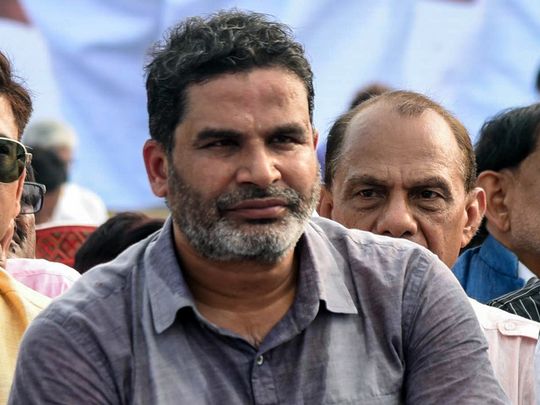
The Janata Dal (United) has ruled Bihar uninterrupted since 2005. Today, the state of governance in Bihar is so bad that its bridges keep falling. Questions are raised about the health of Chief Minister Nitish Kumar, who is 73 years old. And yet, many in Bihar will tell you, Nitish is “alright” for them.
Does Bihar not deserve someone new? Someone different? Someone with the energy of youth? Yes, yes, but they don’t want the main opponent, the Rashtriya Janata Dal to come to power.
Memories of Lalu Yadav’s “Jungle Raj” make sure that many are actively hostile to the idea of RJD coming to power even if they actually like Lalu’s son Tejashwi Yadav.
In Bihar you meet people who praise Tejaswi Yadav but say they won’t vote for him because, they’ll explain, “it’s all about caste”. As election after election shows, Tejashwi is unable to escape the image of being limited to his party’s core voters, Muslims and Yadavs.
The rest prefer Nitish Kumar at his worst to Tejashwi Yadav at his best.
What about the Bhartiya Janata Party? This questions gets a sigh from BJP supporters. The BJP is fine at the national level but they didn’t create any leadership in Bihar. They seem to be content to be propping up Nitish Kumar, even at the cost of their own prospects.
All of this makes Biharis see their politics as a prison they dare not escape. This prison is particularly suffocating because it’s the prison of poverty.
Bihar is India’s poorest state. The only thing young people hope to do in Bihar is to leave, whether they are educated middle class or barely lettered poor.
Cometh the man
After walking around Bihar for two years now, Prashant Kishor has launched his political party, called Jan Suraj, meaning “people’s good governance”.
Kishor is promising people the jailbreak that has felt unimaginable for years. He is offering water to thirsty souls, a voice in the void of silence, a bridge over a vast, empty chasm.
Two years ago it seemed like a foolhardy idea. It’s not so easy to create a new party. Many new parties are formed in India every year. Kishor is Brahmin by birth, a distinct disadvantage in a state with an unwritten consensus that only an OBC person can aspire to state-wide leadership.
He had not shown the ability to stay put in Bihar. Most of all, he had been a “political strategist”, fathering US-style professional political campaign management in India. Directors don’t make great actors, the critics said. The BJP in 2022 seemed to be unassailable, Tejashwi was a rising star. Prashant Kishor’s effort was written off when it started.
As the yatra travelled with its mobile tents from one village to another, Kishor harnessed the power of YouTube to reach Biharis not just in Bihar but across the world. He did something politicians rarely do: he shamed the people.
He asked people coming to his meetings to note that they are unable to afford proper clothes or even slippers for the children in their arms. Men were away working as cheap labour across the country, leaving the elderly, women and children to be predominant attendees in his meetings. He provoked Bihar to aspire to do better, to dream of breaking free from the Nitish-Lalu prison.
A long walk
He didn’t make Arvind Kejriwal’s mistakes. He worked on creating an organisation before announcing the party. He didn’t vacillate on the question of ideology, clearly calling himself “left of centre” in making Mahatma Gandhi the symbol of his campaign.
Unlike Kejriwal, he was conscious to not make it all about himself, saying that he now wanted to be the “political strategist” of the people of Bihar, and was looking to create new leadership at all levels.
These two years have had their own challenges, their own ups and downs. But there is no other way to do it. This is how leaders like Kanshi Ram, Mulayam Singh Yadav, Lalu Yadav and Chaudhry Charan Singh created their parties, upending the political system.
Striking the right chord
Two years ago, people in the streets of Patna had hardly heard his name. Visiting Bihar six months ago, this writer a saw a general sentiment that Kishor was saying the right things, but that was that. It was not translating into a desire to see Kishor break that jail of Bihar politics.
By now, as the Jan Suraj Party formally comes into existence, you can meet people showing enthusiasm and hope for Jan Suraj. It is now easy to find ordinary people rooting for Jan Suraj.
The same Biharis who tell you that Bihar politics is all about caste, are now willing to tell you that Jan Suraj can take them beyond caste politics. The sentiment that they have tried everybody and it’s time to try something new is now being articulated in the tea shops.
Bihar will elect its new government in November 2025. Prashant Kishor has a good 12 months to convert goodwill into votes.










